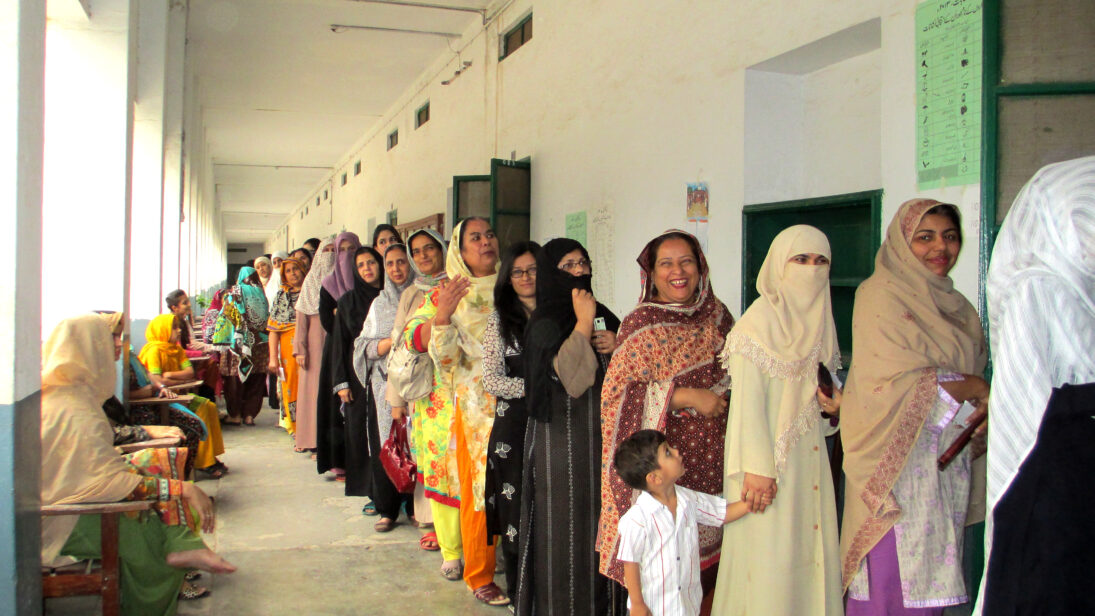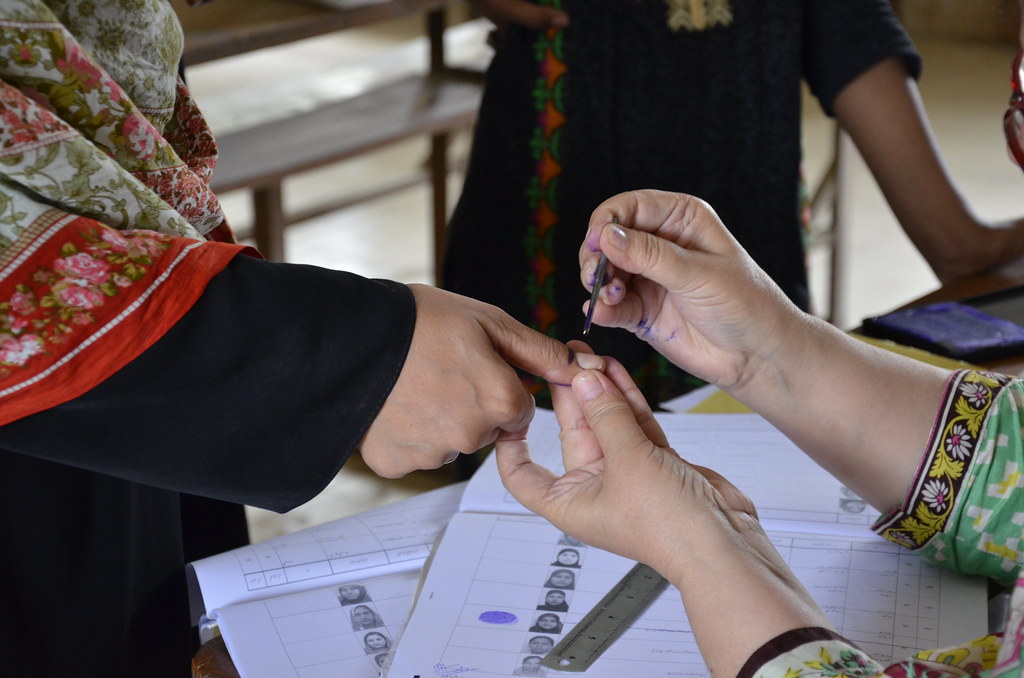
Pakistan is gearing up for elections as voters prepare to cast their ballots and elect the 16th National Assembly. The elected Prime Minister and Parliament will tackle some of Pakistan’s most pressing challenges. The country faces one of its worst economic crises, with record-high inflation and a depreciating currency. There are growing terrorism concerns that have recently strained relations with neighboring Afghanistan and Iran. The country is experiencing high political polarization. Nonetheless, despite growing concerns regarding another potential election delay — including the threat of political violence, terrorism, and cold weather — the Election Commission has declared that the elections will proceed as planned on February 8.
In the 2024 elections, Pakistan’s political script remains largely unchanged despite new actors and a different political landscape. Pakistan’s powerful and influential establishment has wielded its influence to create a favorable election environment that caters to its interests. This has been achieved through various means, such as political maneuvering, coalition building, and control of key institutions. As a result, the establishment has been able to shape the country’s political, economic, and social landscape according to its agenda.
Political Manoeuvring
Despite being the most popular politician in Pakistan and the former “darling” of the military establishment, former Prime Minister Imran Khan is barred from contesting the 2024 National Assembly elections. Following the military’s crackdown after the May 9 protests and the resulting fallout with the security establishment, the Supreme Court stripped the Pakistan Tehreek-e-Insaf (PTI) electoral symbol, the cricket bat, which now compels candidates to run as independents, diluting the PTI’s visibility on the ballot paper. Khan himself has been sentenced to a cumulative of 31 years in prison through convictions related to the Toshakhana case, cipher case, and “iddat” case.
Sharif’s political influence was evident as he attracted a large crowd during the Pakistan Muslim League-Nawaz (PML-N) rally at the historic Minar-e-Pakistan in Lahore, underscoring his popularity in the country’s political heartland.
In this tumultuous political landscape, former Foreign Minister and Pakistan People’s Party (PPP) Chairman Bilawal Bhutto Zardari has emerged as a contender for the position of Prime Minister. The return of three-time Prime Minister Nawaz Sharif, enabled by courts that granted him protection from arrest, hints toward the establishment’s pre-electioneering. Notably, corruption charges against him were swiftly overruled in the courts, marking a swift legal turnaround. Sharif’s political influence was evident as he attracted a large crowd during the Pakistan Muslim League-Nawaz (PML-N) rally at the historic Minar-e-Pakistan in Lahore, underscoring his popularity in the country’s political heartland. Nawaz Sharif’s return indicates that he has managed to mend ties with the military. In turn, the country’s top brass wish to clear their path from any obstacle the ousted Imran Khan and his party leadership brought.

Coalition Building
Freedom House adjudicates Pakistan’s democratic landscape as “partly free.” The military exercises enormous influence over policy, security, and political issues by operating a “hybrid regime” with elected governments. Despite regular elections, no elected prime minister has ever completed a full term in Pakistan’s history. Sharif is aware of the establishment’s unpredictable nature due to his historically strained relations with the military, recently seen during his third stint as Prime Minister (2013-2017). Whether a potential fourth term will usher in a symbiosis between the civilian and military administrations remains to be seen.
The military in Pakistan will likely view a weak coalition as advantageous to continue exercising their control of decision-making in Pakistan’s struggling democracy.
The military will also likely seek to play a part in developing strategic alliances through coalition building. Considering the timing of the elections, it seems difficult for any single party to be voted in with a significant majority. The PPP and PML-N emerged as major political players in the current political landscape during their 16-month coalition government through the Pakistan Democratic Movement (PDM). Despite their shared history in the PDM, the post-election environment could create opportunities for the military to involve itself in political engineering by helping form coalitions in the National Assembly. The PPP leader, Asif Ali Zardari, seems open to forming alliances with any party by calling for a pragmatic approach to politics, which he describes as a “chessboard.” PPP Chairman Bilawal Bhutto, however, seems to have adopted the opposite approach. When questioned about the prospects of a similar PDM coalition after the elections, he said, “Fool me once, shame on you, fool me twice, shame on me.” The military in Pakistan will likely view a weak coalition as advantageous to continue exercising their control of decision-making in Pakistan’s struggling democracy.
Looking Ahead
Pakistan’s 2024 elections will remain controversial, as the military largely continues to pull the strings in the elections. The establishment defined its redlines by convicting the country’s most popular leader, Imran Khan, and reshuffling the political landscape by paving the way for Nawaz Sharif’s return. Chietigj Bajpaee, a senior research fellow at Chatham House, identifies two key obstacles in Sharif’s potential return to power, which remain salient for whoever the incoming Prime Minister may be.
First, if elected, the new Prime Minister will need to carefully navigate relationships with the military, bureaucracy, and intelligence services, which have historically played pivotal roles in ousting incumbent Prime Ministers from office. Second, the new Prime Minister will likely require popular support from voters to legitimize his government and carry out policy changes. While the PTI faces significant political and legal hurdles, it enjoys widespread popular support across a polarized country, which could pose challenges in implementing policy. A Gallup poll conducted in late 2023 revealed that 70 percent of Pakistanis believed that elections “would not be honest.” The incoming government, no matter who it may be, will face a challenge of legitimacy when attempting to tackle Pakistan’s considerable challenges.
Also Read: Election Eve: Evaluating the State of Democracy in South Asia.
***
Image 1: Women standing in line to vote in Pakistan’s 2018 General Elections via Flickr.
Image 2: Voters in Pakistan’s 2018 General Elections via Flickr.


